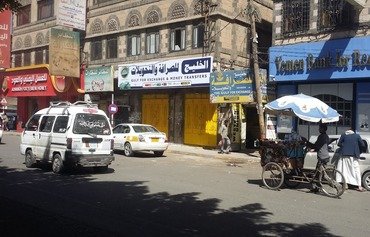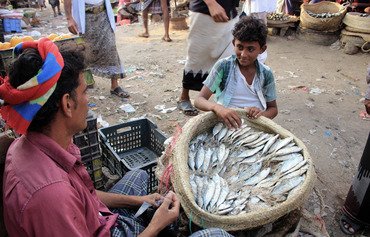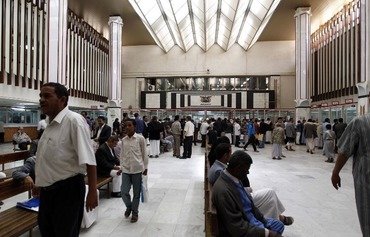Battles have been raging in al-Durayhimi district in southern al-Hodeidah since Saturday (August 4th) between the Iran-backed Houthis (Ansarallah) and Yemeni forces, local media reported.
Yemeni forces have been advancing towards al-Durayhimi, as the Houthis have been storming houses in the district, expelling residents and taking positions there.
On Saturday, the army sent reinforcements from the Giants Brigades and the National Resistance forces to liberate the centre of the district.
The Houthis have deployed snipers in the district to prevent the advance of joint forces, especially from the northwestern side of al-Durayhimi after they forced residents out.
The militias have also closed the eastern Lawya road in al-Shajan village, prevented residents from leaving and forced them to return to their houses to use them as human shields, local sources and media outlets reported.
A member of the Houthis' political wing said Saturday the militia was willing to attend UN-brokered talks to end the conflict in Yemen.
Salim Meghles said the Houthis' political wing is "not opposed to such consultations" which are aimed at "reaching a general framework for negotiations".
"We are not opposed to travelling to any neutral country to take part in such consultations," he told AFP.
The UN envoy to Yemen, Martin Griffiths, on Thursday told the Security Council that "a political solution" to end the war in Yemen was "available" and that the warring sides would be invited to talks on September 6th in Geneva.
The UAE said Sunday it backs the talks. "We have always supported the special envoy [Martin Griffiths], we are going to continue to do so," Emirati Minister of State for International Co-operation Reem al-Hashemi said.
Saudi resumes oil exports through Bab al-Mandab
Meanwhile, Saudi Arabia said Saturday it was resuming oil shipments through the Bab al-Mandab Strait, ending a 10-day suspension triggered by Houthi attacks off the coast of Yemen, AFP reported.
The decision came after measures by the Arab coalition to "ensure the security of navigation in this strait and in the Red Sea", said Saudi Arabia's Energy Minister Khaled al-Falih, quoted by the official Saudi Press Agency.
Measures had been taken "in co-ordination with the international community", Falih added, without providing further details.
Yemen's government warned Yemeni fishermen against sailing off the country's territorial waters and urged them not to approach coalition ships.
The government said in a statement that the presence of fishing boats in areas of operations is exploited by the Houthis in targeting cargo ships and threatening navigation.
The statement also urged fishermen not to allow Houthis to use fishing boats as a cover to carry out terrorist operations in international waters.
Unlicensed currency exchange offices closed
Yemen’s Central Bank has been clamping down on illegal currency exchange offices as part of the bank’s measures to protect Yemen’s riyal from further dropping against hard currencies.
So far, 26 exchange offices have been closed in Marib and 11 in al-Mahrah, local media reported. The campaign is ongoing in all liberated provinces.
These measures come as the Yemeni riyal continues to drop against foreign currencies. On Sunday, the riyal was sold for 525 against the US dollar, a new all-time low.
"The bank has taken several measures to prevent the riyal from further dropping, including withdrawing $22 million from the Saudi deposit to cover imports of basic commodities," Central Bank Governor Mohammed Zammam told local media.
"It will withdraw more amounts from the deposit to cover imports of these commodities, and will carry out campaigns to close illegal exchange offices," he said.
The war has led to a major shortage in hard currencies, he said, noting that "the only source of currencies now is oil revenues, which do not exceed $100 million a month".
"The other reason for the currency deterioration is speculation by some people to achieve personal interests at the expense of the country’s economy," he added.
Studies and Economic Media Centre chairman Mustafa Nasr said some companies have stopped sales, causing hikes in basic food prices.
"The Ministry of Industry [and Trade] has to monitor prices, sales and purchases, and to control price hikes which should be consistent with the rise in US dollar value," he told al-Mashareq.
"Yemen is an importer of food, and therefore, the rise in the value of hard currencies directly affects prices and aggravates the suffering of the people, about 90% of whom need assistance," he added.

![A Yemeni child plays on used car tires as displaced people from al-Hodeidah receive humanitarian aid donated by a Turkish NGO in the northern Yemeni district of Hajjah province on August 6th, 2018. [Essa Ahmed/AFP]](/cnmi_am/images/2018/08/06/13852-yemen-conflict-600_384.jpg)






